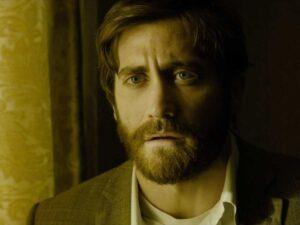What would you do if you met a double of yourself? We don’t mean somebody who wears the same clothes or shares your taste in movies. We mean a literal double, as is the case with the film Enemy. What would you do if someone who was exactly like you in every way just walked around?
Enemy is an early film by director Denis Villeneuve. Before he was adapting the greatest sci-fi novel ever written, he started off smaller with loosely adapting Jose Saramago’s 2002 novel, The Double. Even though Enemy is not as much a futuristic sci-fi film as Blade Runner 2049 or Dune, you can see the director’s central themes of introspection being out and proud, while still being eerie and weird.
WATCH: Enemy Explained | Denis Villeneuve
The film follows Adam Bell (Jake Gyllenhaal), a college history teacher with a life as boring as his lectures. The monotony of Adam’s life threatens to crumble the relationship with his girlfriend, Mary, played by Melanie Laurent looking too good for a loser teacher.
The boredom for Adam leads to daydreams in the breakrooms, preserving his statue-like stoicism. His daily meditation is interrupted by a coworker who recommends that if Adam is going to stare off into space his whole life, he might as well watch a movie. The movie recommendation is “Where There’s a Will There’s a Way,” which Adam proceeds to rent from the video store – something you could still do in 2013.
When Adam watches the movie on his laptop, he discovers that someone who looks exactly like him is playing bellhop. Intrigued by this discovery, and with the possibility of unclaimed royalty checks, Adam seeks out this mysterious doppelganger.
He’s Just Like Me
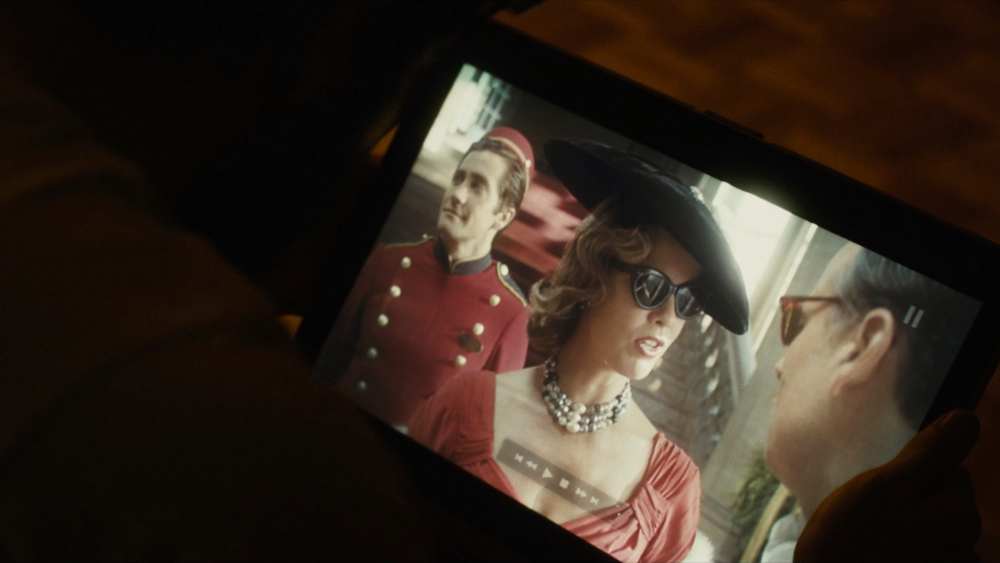
Through his investigation, he learns that the actor is called Daniel Saint Claire. Fascinated by this man, Adam decides to hold a Daniel Saint Claire movie marathon for more information. But since there are only two more movies and Daniel never appeared on Inside the Actor’s Studio, Adam seeks out this mysterious actor. By visiting the talent agency Daniel associates with, Adam becomes an accidental infiltrator and is mistaken for Daniel. Through this interaction, Adam learns that Daniel is just a stage name and the actor goes by the real name Anthony Claire.
Adam also receives some of Anthony’s mail and locates his apartment address. Taking this stalking one step further, Adam calls Anthony’s apartment. Instead of speaking with the actor, he ends up speaking with Anthony’s pregnant wife, Helen. She mistakes Adam for Anthony and assumes her husband is pulling a prank call on her. While this would be the perfect time to pull a prank, Adam decline’s this identity and hangs up, severing his audition for Crank Yankers.
Eventually, Adam does speak with Anthony and another prank is assumed. But since AI voice replication wasn’t as robust in 2013, the idea of a doppelganger becomes extra creepy for Anthony. He warns Adam to quit being a stalker, but the two seem to share a stalker gene. Soon after this exchange, Anthony grows curious about Adam and tracks down this mysterious guy who sounds just like him.
Criss-Crossed Relationships
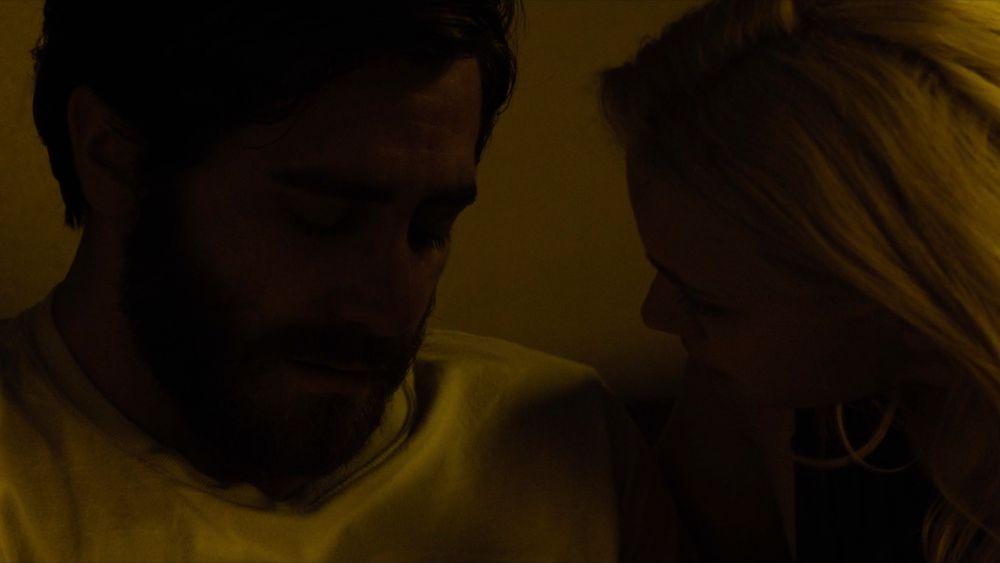
Adam and Anthony also seem to have a bad-relationship gene. Helen finds herself intrigued by the mysterious caller and believes it might be a jealous husband from one of Anthony’s affairs. A bitter Anthony denies this and leaves to blow off some steam with his new favorite activity: Stalking Adam to find out he works at a university.
Helen also takes an interest in this hobby as well. She takes note of Anthony’s…notes and tracks down Adam. She is naturally shocked to discover another man that looks like her husband, thus making for a series of very awkward conversations with Anthony. Later on, Anthony and Adam will meet in person at a hotel, where they confirm similar physical traits like scars. The meeting becomes too real and Adam returns the talent agency letter to Anthony before bolting out of the room, declaring this meeting was a bad idea. It’s not the worst idea two identical people could do in a hotel room, but it’s still creepy.
Speaking of creepy, Anthony takes his stalking game to the next level by following Adam’s girlfriend, Mary. The actor uses his acting skills to woo Mary as Adam, but also accuses Adam of sleeping with Helen. Anthony uses this power of accusation to get a hold of Adam’s car and clothes, making it way easier for him to seduce Mary.
Adam also goes full Prince and the Pauper by impersonating Anthony in front of Helen. Even though this deception doesn’t fool Helen, she still goes along with this act. After all, it’s not every day you get to sleep with your husband’s doppelganger. Adam gets some deceptive sex, Anthony doesn’t succeed in seducing Mary. She can tell something is up and that this man is not really her husband. It could be his demeanor or it could be his wedding ring mark. It’s hard to say.
Anthony’s date goes from bad to worse when he argues with Mary on the car ride home. They argue so hard that they crash and likely die. Worst date ever.
The following morning, Adam confesses to Helen that he lied to her. But since Helen still loves this man who is honest with his feelings and cuddles in bed, Adam gets the green light for round two. This life seems great to Adam and he decides to stay as Anthony. But is it a good life? On the plus side, the letter from the talent agency seems to signal that bigger roles are on the horizon. The bad news is he might now be living with a giant tarantula instead of Helen. The reserved look and tired sigh signals that this all might have been a wash, where his life doesn’t turn out better, but doomed once again to a pattern.
Who is the Real Man?
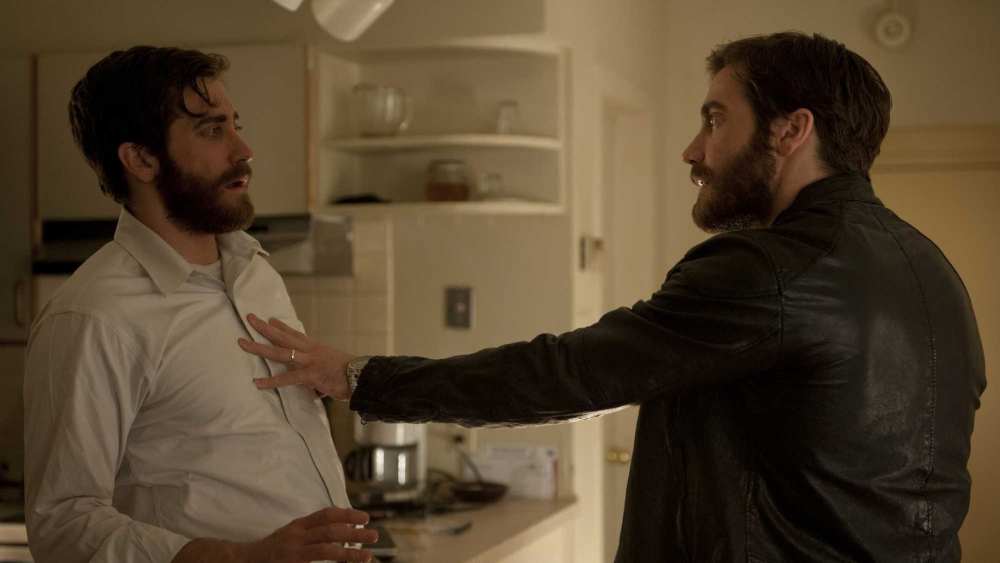
Enemy poses the characters of Adam and Anthony as one and the same, but with key differences. One is brash and deceptive while the other is mundane and emotional. These clashing personalities lead the viewer into believing one of them is the true self while the other is the alter ego. But much like that typical scene when encountering doppelgangers and trying to decide which evil one to shoot, we never know which is which. Does Adam’s mundanity make him the more believable person on the surface, or is he just the tamer alter ego of what Anthony wants to be? Denis Villenueve doesn’t give the audience an easy answer. While some narratives make it clear by the end who was real and who was imaginary, there is no clear winner of reality in the battle of Adam versus Anthony.
If anything, Adam and Anthony might be the exact same person. There are clues we can follow in the film that suggest this theory. Consider that Anthony has a photograph of himself posing with his wife, while Adam has the same photo of himself, but torn in half. Consider also that Helen seems aware of a stranger like Adam and accepts this doppelganger into her life way too easily. From this framing, it would seem to suggest that Anthony is the real person and Adam is the alter ego, living a double life.
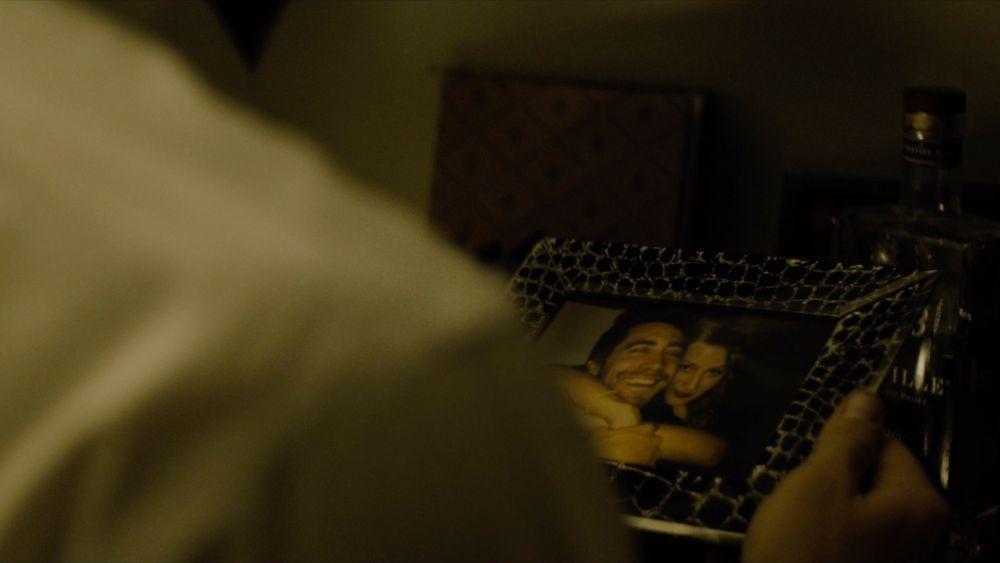
But don’t go rushing to that easy excuse just yet. There’s also evidence that implies the opposite. The greatest defense for Adam being the real deal is through his mother. She speaks openly about how Adam is used to meeting strange men in hotel rooms, something that would seem weird unless you were an aspiring actor or prostitute. She also brings up Adam’s past problems with women, as well as his attempts to become an actor. So maybe Adam is the real man and Anthony is the actor he wishes to be?
Further complicating this dissection is how many little things fly in the face of Adam and Anthony being the same person. Questioning stuff like the mail, the wedding ring mark, and the car crash all further complicate this idea. Really, though, that’s just nitpicky and dodges the grander themes of the film. The question isn’t will they/won’t they, but rather who they/are they.
Patterns of Control
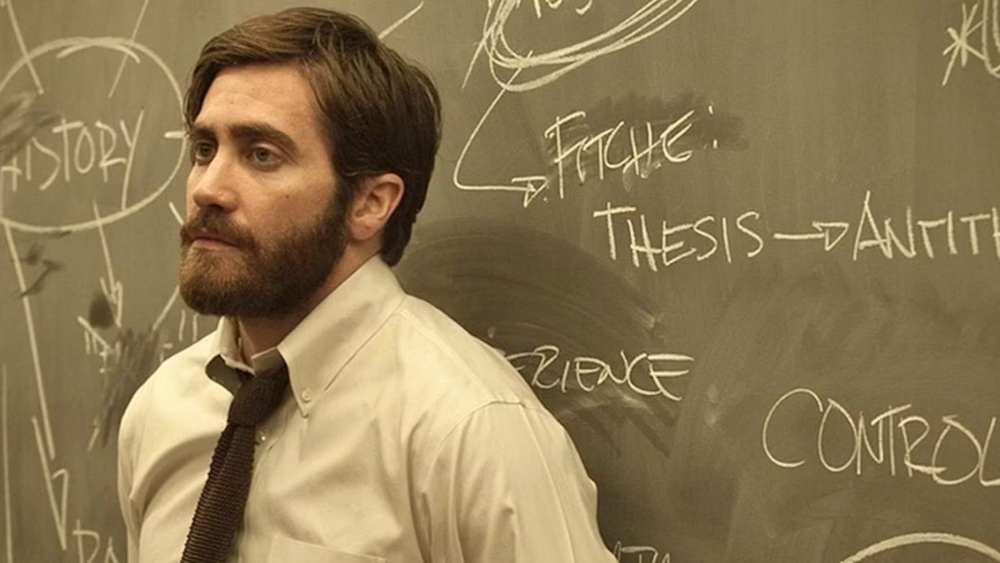
Enemy is a film that questions our human nature when posed with our own equal and how we manage power over our identity. In the opening lecture by Adam, he speaks about how dictators of the past wielded control is a pattern of mankind’s quest for dominance. Adam’s life also falls into a pattern of uncontrollability, where he finds his controlled routine is disturbed by Anthony. The presence of this other guy doesn’t make sense and the boring teacher tries to find a boring answer.
On the other side of the coin, Anthony’s life is struck in a different pattern of control. He’s more on a quest for power, highlighted by his acting career and affairs. When presented with somebody like Adam, it’s an opportune moment for the easiest way to cheat on his wife. When realizing Adam has a girlfriend, his thoughts quickly turn to deception. He could pose as Adam and sleep with Mary while posing as her boyfriend. None of that wooing or payment required.
But much like a power-hungry dictator who bites off more than he can chew, Anthony chokes on his own impulses. He’s not smart enough to get rid of that pesky wedding ring mark, ruining his chance at sex with Mary. He’s also not smart enough to avoid crashing his car, thus ruining his chance at existing. So the man who wanted a double life ends up with no life at all and, yes, we know how much that sounds like something you’d read on a fortune cookie.
Compare this with less impulsive Adam, who feels more guilt for his action of cheating and is open about when he was wrong. From Helen’s perspective, it looks as though she has traded up for the better man. But as the ending of the film suggests, Adam might be falling right back into the same pattern as Anthony, where there are more opportunities to act on negative impulses.
What’s With All The Spiders?

In a heavy divergence from the book, Enemy adopts spiders as part of its motif. The spiders are everywhere. They’re small in the opening when they’re being stepped on. There are also giant ones hovering above Toronto, far too big to be stomped. Coupling this with the ending of a giant tarantula is enough to make even the most dim of viewers remark, “What’s the deal with the spiders?”
Well, the spiders are meant to represent femininity and how it reflects in a patriarchal society. The association of spiders with femininity has the negative connotation of entrapment. This is more or less why Adam views Helen as a spider by the end of the film. It highlights how men in power don’t see women as individuals, but rather trophies for their walls or spiders that will trap them.
Consider the opening scene where Anthony ventures to a sex club to watch a woman stomp a spider. This is more than just a weird foot fetish, but a desire for control and highlights Anthony’s lesser views on women. This aspect comes back around when Adam commits to a relationship with Helen. After her transformation into a spider, she cowers in the corner, fearing that she’ll be squashed. While Adam’s shoe size is not big enough for a literal stomping, he still has the same problem of seeing women as lesser beings. It’s a hideous worldview that even someone as timid as Adam may not be able to shake when power presents itself.
Conclusion
In the tradition of David Lynch, Denis Villenueve’s Enemy exists not as a film to be solved, but observed for its mediations on the duality of identity, masculinity, and desire. There is plenty of ambiguity to give the brain much to munch on in what it represents. It’d be easy enough to look at the film from the perspective of class and gender. At its core, however, is a story about how easily it is to get locked within patterns, making it one of Villenueve’s most cerebral of films.
What are your thoughts on Enemy?

